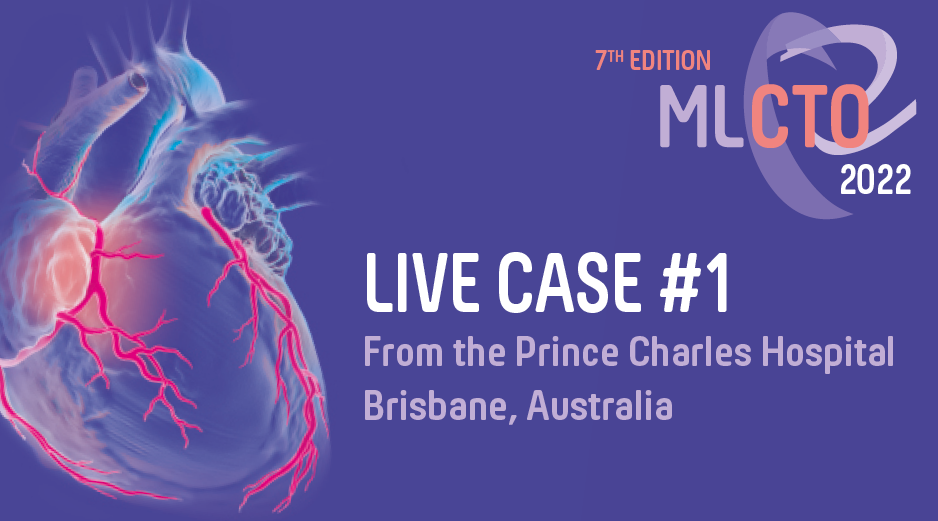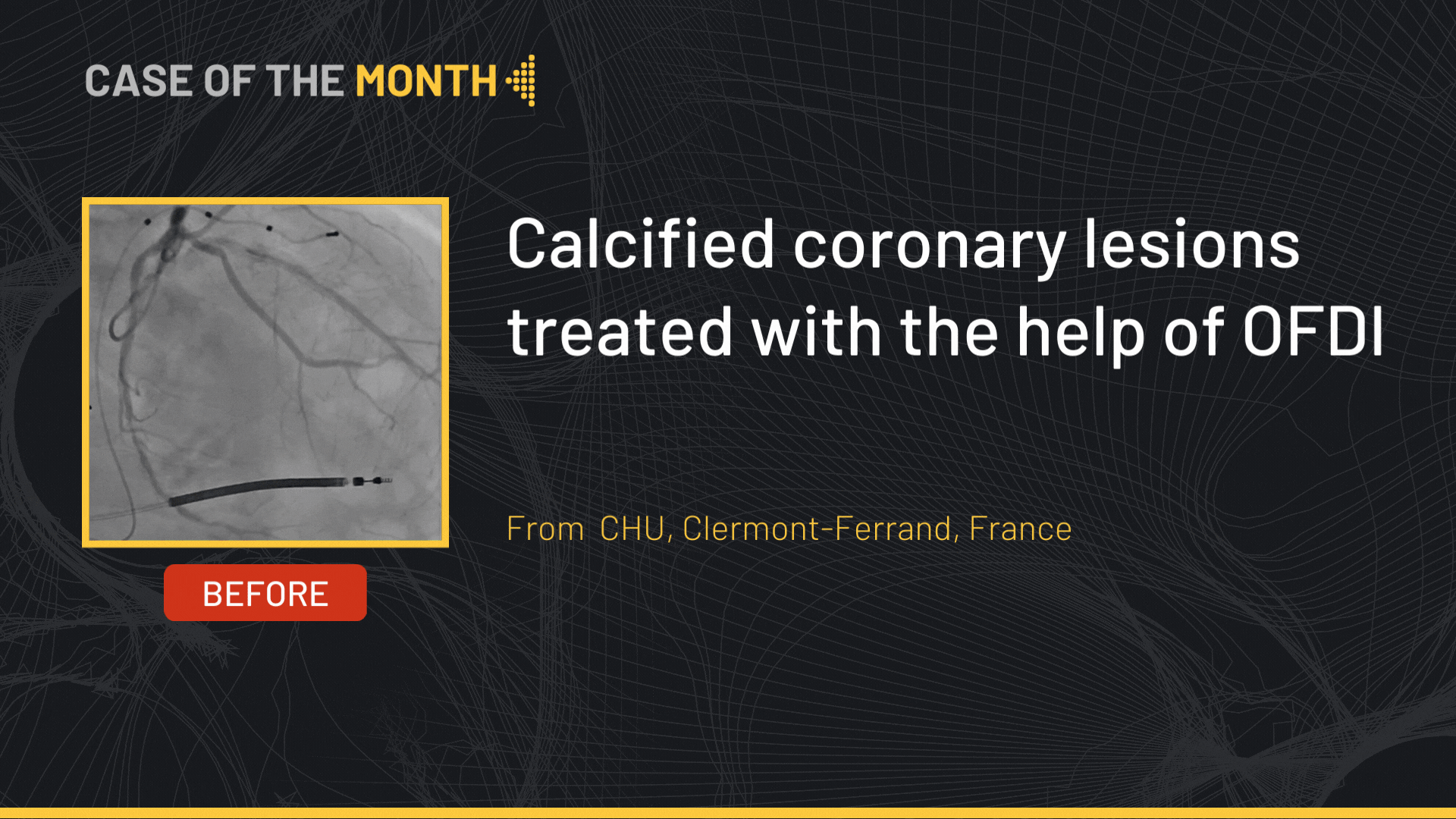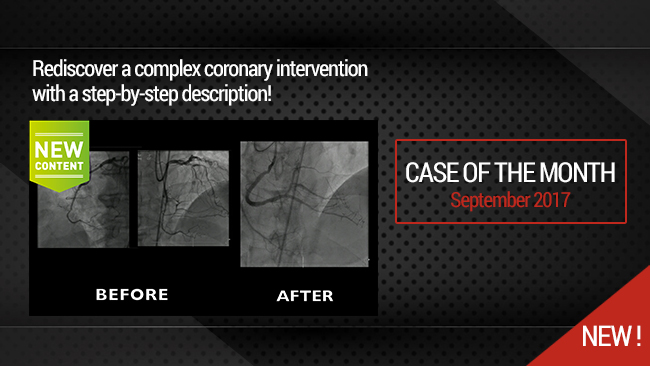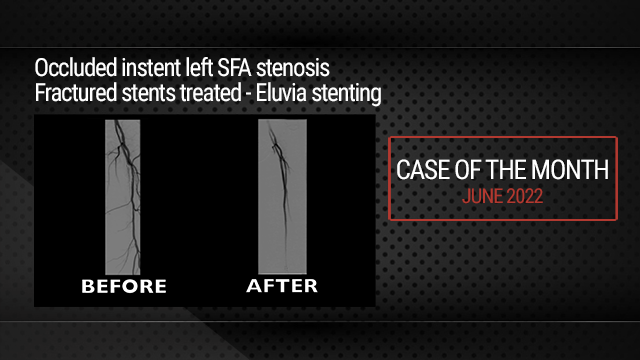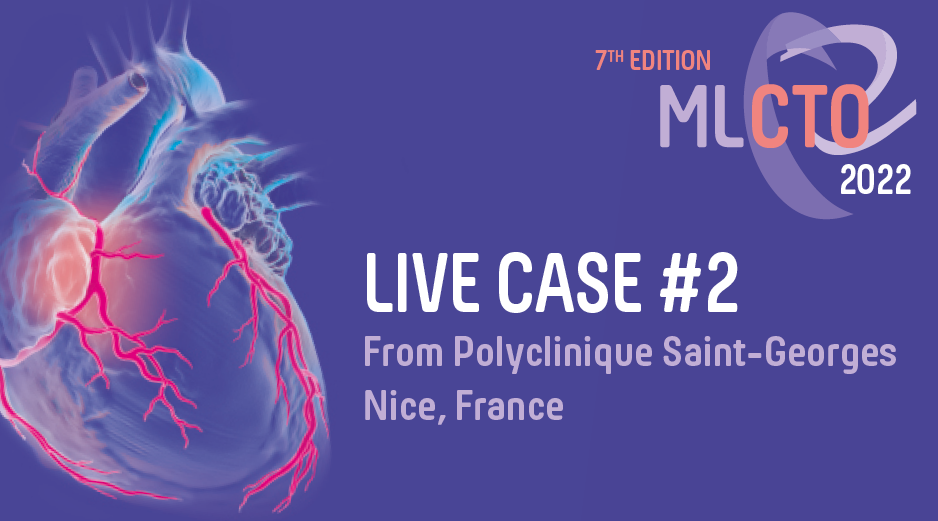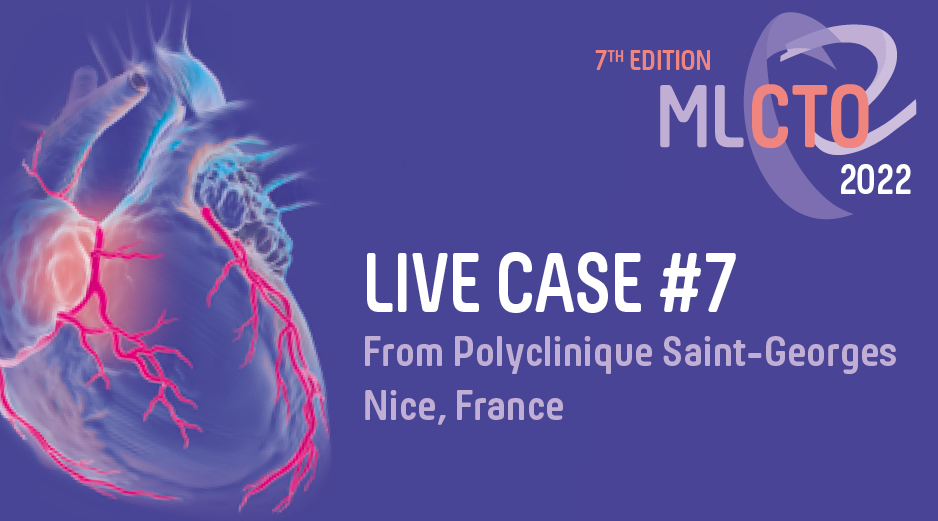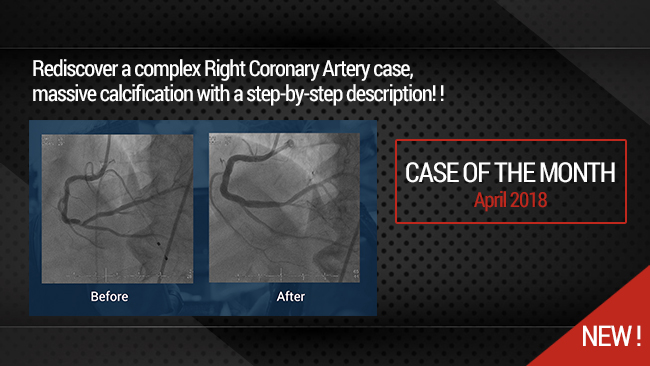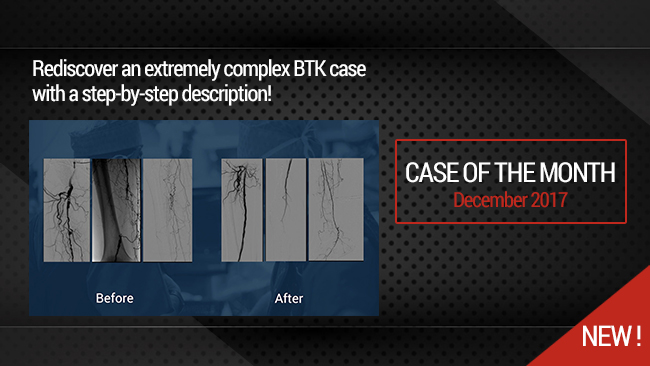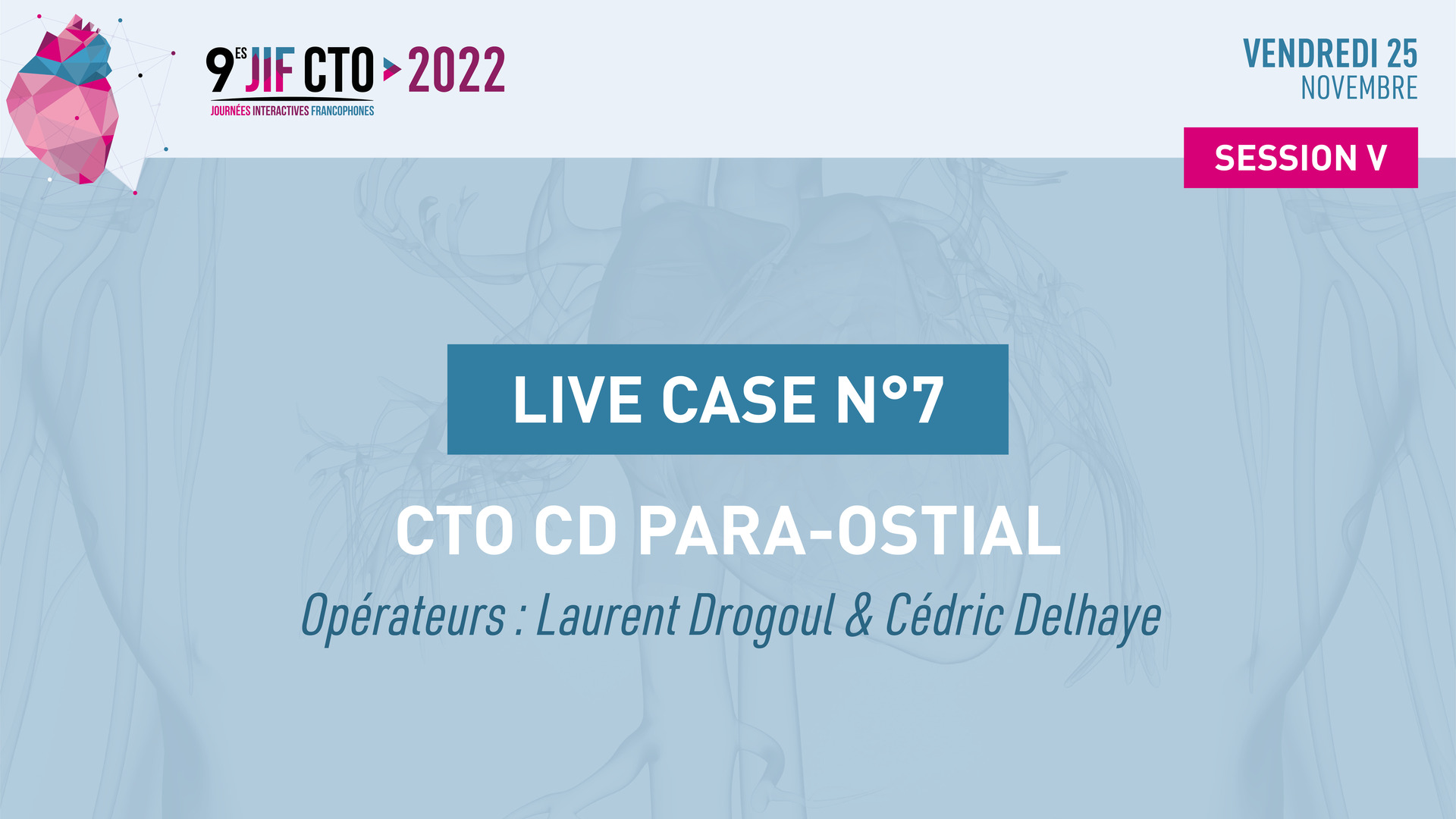×
It looks like you're using an obsolete version of internet explorer. Internet explorer is no longer supported by Microsoft since the end of 2015. We invite you to use a newer browser such as Firefox, Google Chrome or Microsoft Edge.
My Player placeholder

Become an Incathlab member and receive full access to its content!
You must be an Incathlab member to access videos without any restrictions. Register for free in one minute and access all services provided by Incathlab.You will also be able to log into Incathlab from your Facebook or twitter account by clicking on login on the top-right corner of Incathlab website.
Registration Login
Registration Login
This month, we highlight the step by step approach of a tortuous RCA CTO lesion in a 71 years old male patient, s/p LAD stenting with ischemia at the level of the anterior and inferior walls on myocardial scintigraphy. The RCA shows a 20 mm calcified occlusion at the proximal level, with a relatively tapered proximal cap and retrograde filling from the septals.
Educational Objectives
- Plan a step-by-step approach procedure for CTO lesions.
- Antegrade wire escalation.
- Access sites and size possibilities during procedure.
- Wires to favor/avoid during subintimal space manipulation.
- IVUS role in CTO.
Step-by-step procedure:
1) Access site:
- Right radial approach: 7 French EBU to the left main + workhorse wire towards the distal LAD.
- Right femoral approach: 8 French AL to the RCA.
2) Step by step approach:
- The initial strategy was antegrade wire escalation.
- Using a Corsair Pro microcatheter a Fielder XT-R wire made progress through the CTO body advancing it further with the help of a retrograde injection.
- The wire appeared to be within the vessel architecture nonetheless following a deflecting trajectory.
- Escalation of the wire for a Gaia Second that finds a better position but was still subintimal.
- Redirecting the Gaia Second towards the intraluminal space followed by microcatheter advancement.
- De-escalation back to the Fielder XT-R that finds the intraluminal space.
- Exchange of the Fielder XT-R for a Sion blue wire followed by trapping and retrieving of microcatheter.
- Pre-dilatation of the occlusion body by a 3.0 mm balloon was performed.
- Stenting of the ostial RCA using 3.5x48 mm stent was followed by intravascular ultrasound (IVUS) which confirmed a long subintimal path after the distal edge of the stent with a typical image of an extraplaque path with a well apposed stent proximally.
- Additional stenting at the extraplaque level using a 3.5x20 mm stent was performed.
- The final angiographic end-result showed a satisfactory result.
Bibliography
1. Kalogeropoulos, A.S.; Alsanjari, O.; Davies, J.R.; Keeble, T.R.; Tang, K.H.; Konstantinou, K.; Vardas, P.; Werner, G.S.; Kelly, P.A.; Karamasis, G. V. Impact of Intravascular Ultrasound on Chronic Total Occlusion Percutaneous Revascularization. Cardiovasc. Revascularization Med. 2021, 33, 32–40, doi:10.1016/j.carrev.2021.01.008.
2. Xhepa, E.; Cassese, S.; Rroku, A.; Joner, M.; Pinieck, S.; Ndrepepa, G.; Kastrati, A.; Fusaro, M. Subintimal Versus Intraplaque Recanalization of Coronary Chronic Total Occlusions: Mid-Term Angiographic and OCT Findings From the ISAR-OCT-CTO Registry. JACC Cardiovasc. Interv. 2019, 12, 1889–1898, doi:10.1016/j.jcin.2019.04.049.
3. Denby, K.; Young, L.; Ellis, S.; Khatri, J. Antegrade Wire Escalation in Chronic Total Occlusions: State of the Art Review. Cardiovasc. Revasc. Med. 2023, 55, 88–95, doi:10.1016/J.CARREV.2023.06.011.
4. Maeremans, J.; Knaapen, P.; Stuijfzand, W.J.; Kayaert, P.; Pereira, B.; Barbato, E.; Dens, J. Antegrade Wire Escalation for Chronic Total Occlusions in Coronary Arteries: Simple Algorithms as a Key to Success. J. Cardiovasc. Med. 2016, 17, 680–686, doi:10.2459/JCM.0000000000000340
Shooting date : 2024-04-09
Last update : 2024-04-09
Last update : 2024-04-09
Our Cases of the Month
The case of the month is a new way for our users to watch, learn, and share with incathlab. They can watch a video that highlights an innovative case and uses excellent pedagogical techniques, lear...
Share
Suggestions
Very complex Mid RCA occlusion
Retrograde in 1st intention and Antegrade approach for recanalization
Share
Occluded instent left SFA stenosis | Fractured stents treated - Eluvia stenting
Case of the month: June 2022
Share
Recanalization for limb salvage
Three occlusions: femoral, popliteal and posterior tibial arteries - Case of the month: December 201...
Share




